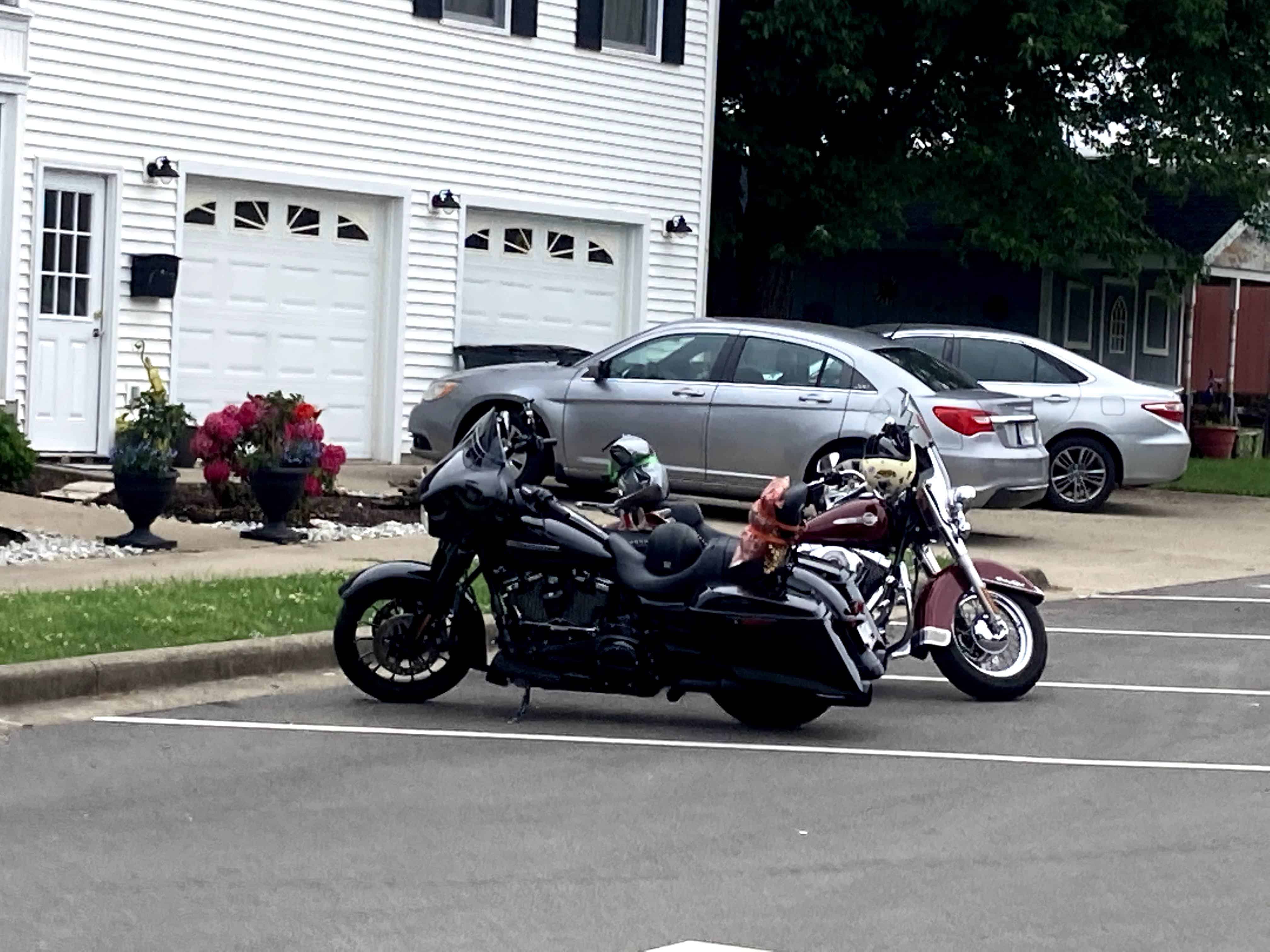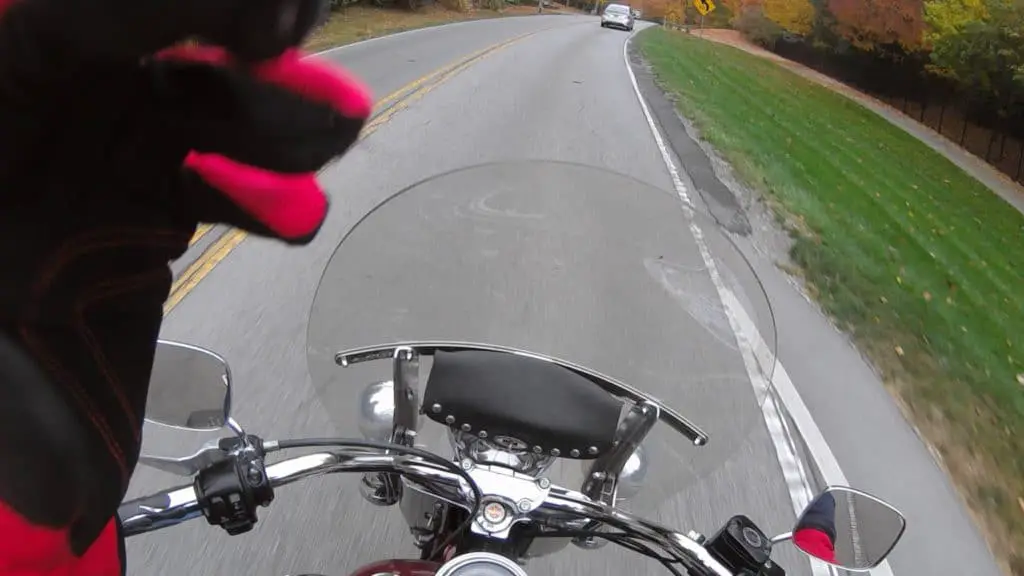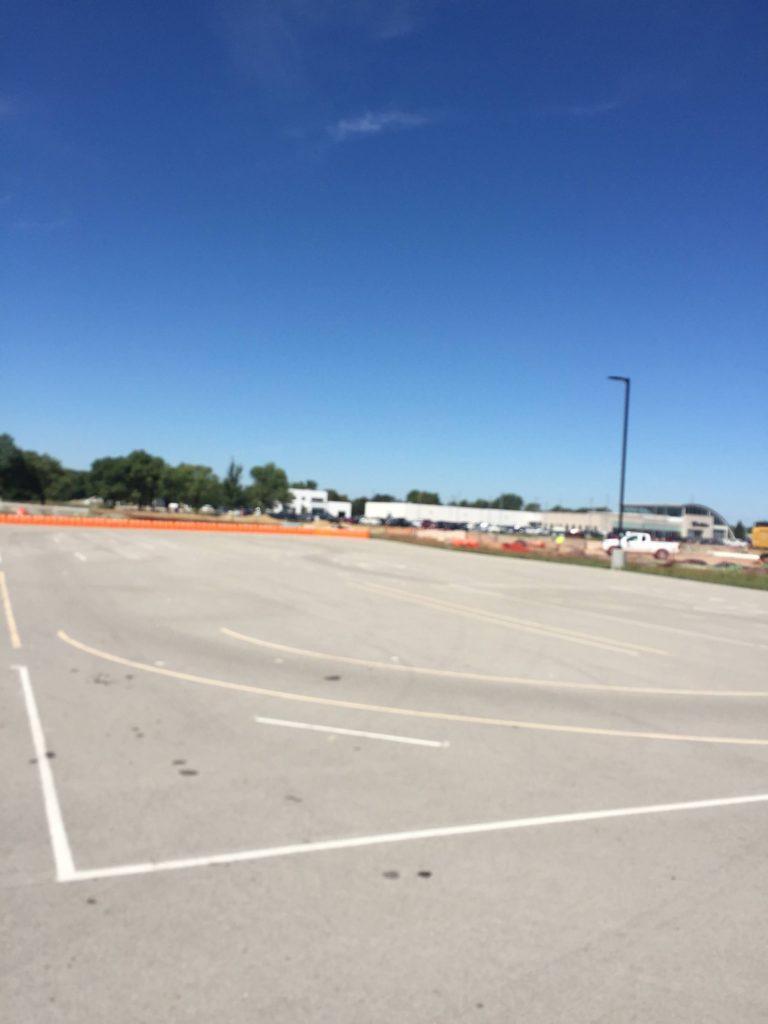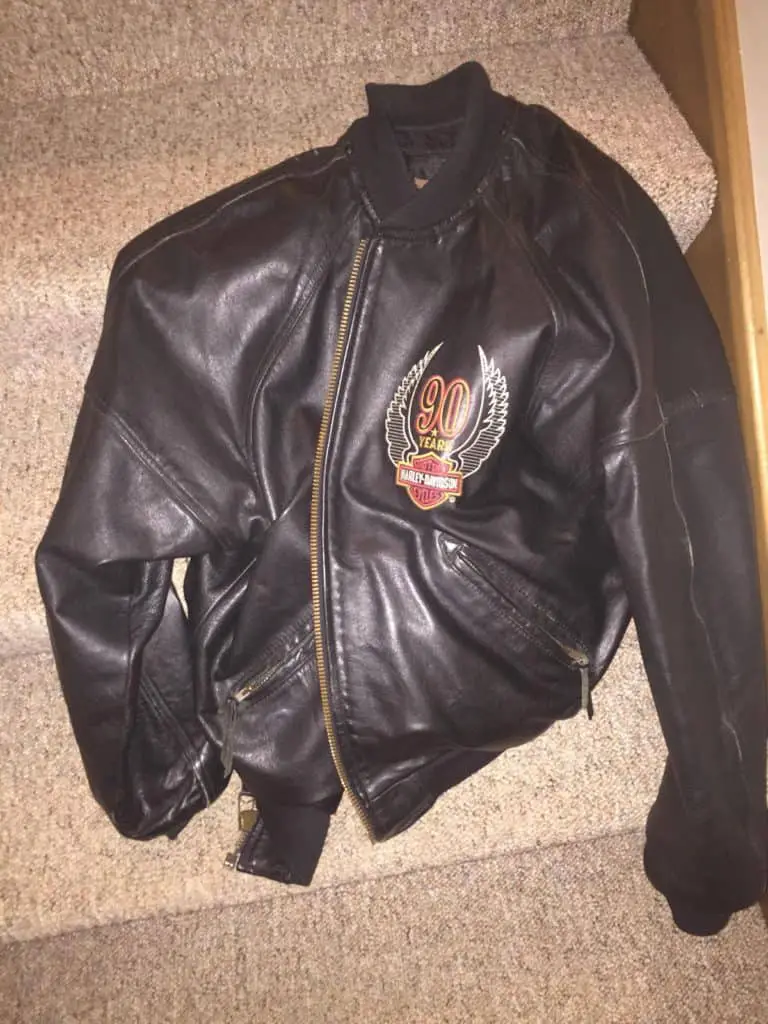After a moderate crash last week, I was wondering if everyone crashes a motorcycle while riding.
As a general rule, people should expect to have at least a small crash or accident on their motorcycle. Not having an accident is very rare especially among new riders. The best way to deal with an accident is by practicing your skills, wearing visible and protective equipment, and avoiding inclement weather.
While saying the best way to prepare is simple, it is a lot easier said than done. The fear of a motorcycle crash can be overwhelming. Let’s break this down so you address your fear and become a more informed rider.

How common are motorcycle crashes?
First, let’s get the ugly bits out of the way.
Motorcycle crash data gives an interesting story for people to stay off their beloved machines.
According to the Insurance Institute for Highway Safety, there were twice as many deaths from motorcycles in 2019 as there were in 1997. Put this into perspective. Know the 2019 fatalities totaled 5014. The Insurance Information Institute published data there were 25.47 motorcycle fatalities per 100 million miles traveled vs .89 for cars.
While any death is one too many, we are not talking about many deaths that bring the world to an end. As motorcycle riders, we should know the risks involved before throwing a leg over our machine.
Every motorcycle rider should expect to have some kind of accident or crash. Amazingly, while reviewing a few online forms, some riders say no to every rider going down.
While there may be a few riders out there who have not had a motorcycle accident, it would be very rare and a bad assumption to make.
The crash or accident may be as simple as dropping your bike, something that 99% of us have done. Your pride gets hurt, and the bike gets a few scratches. There are probably no major injuries.
Differences Between Motorcycle Accident and Crash
Some of the forums went into details about and legitimacy of a motorcycle accident vs a motorcycle crash.
The argument goes an accident is something you know may happen versus a crash as something you did not expect to have happened.
A rider never plans for either of these to happen to make both irrelevant.
How do you not crash a motorcycle?
This question can become exhausting, but we’ll create a common sense list to help keep the rubber side down and to help avoid crashing a motorcycle.
Ride Defensively– This should always be number one. Some of you do not like or will not wear helmets, but everyone can ride defensively. It is the same basic concept as driving defensively in a car.
Riding defensively allows you to defend yourself from the bad driving of other cars and riders.
Be Scene– Other motorists have a hard time avoiding what they cannot see. Consider how little room you occupy on the road versus a car. Put dark clothing in the mix and you’re stirring the pot asking for a bad accident to happen.
Wear bright color clothing. It just so happens that my favorite color is orange. I have an excuse to wear it a lot while on the motorcycle.

Be Aware of Upcoming Weather Before Your Motorcycle Ride- I like the saying Know Before You Go. Take a look at the weather developing in the general region you’ll be riding. Getting caught in a rainstorm is never fun.
As a bonus, make sure you keep at least some light weather gear on the bike. I keep a rain jacket in my saddlebag. It has come in handy a few times with rain and on cold mornings.
Look At And Through Intersections- Always be on the lookout for cars approaching intersections. In the country, people look more for farmers than they do motorcyclists.
I’ve avoided a few accidents by paying more attention to motorists approaching intersections than I care to admit.
Assume the oncoming driver will do nothing more than a quick glance.
Avoid Riding in the Rain- Consider this more a reminder than anything. I have yet to be with a riding partner who willing wants to start off riding in the rain.
Most importantly know the first 15-30 of a rain shower create the slickest conditions on the road. This is when motorcycles are the most vulnerable.
The combination of oil and water creates a low friction environment for your tires.
Don’t Drink And Ride- In case you didn’t know, drinking can impair your judgment. Not only can you pick up the wrong person at the bar, but you also make bad choices on the motorcycle.
The problem with the drunk choices on the motorcycle is the fact you may not wake up the next morning to discover the bad choice you made. Just don’t drink and ride.
Avoid Excessive Speeding- Too much of a good thing becomes bad. Don’t get me wrong I love speed too, but on a motorcycle, it is a whole different ball game.
Not only are you faster than a car, but when you’re harder to see it greatly increases the chances of an accident happening when you riding at excessive speed.
Practice, Practice, Practice- It does no good to ride defensively if your defensive riding skills are at a 1st-grade level.
You would not ask a young child with their training wheels newly off to complete a tight maneuver to avoid an oncoming cyclist. This is what you’re asking of yourself if you don’t practice your skills.
Check Your Lights- Again it is hard to avoid what you cannot see. On coming traffic will see the lights on your bike before they saw anything else.
Sometimes they go out. This recently happened to help and I didn’t realize it until I was doing a routine check over of the bike.
Reduce The Severity Of A Motorcycle Accident
Know this list was separate from the ways of reducing the chance of a motorcycle accident. When accidents happen, these items will reduce the severity of the crash.
Wear A Helmet- Reduce the risk of death by 42% and head injury by 69% by wearing a motorcycle helmet.
Those two numbers tell the complete story. Besides, it gives you something else to customize.
Wear Protective Clothing- In the event you complete a skid across the meat-grinding pavement, protective clothing can make this less painful.
Know these types of clothing are expensive. In full disclosure, I do not wear as much of it as I should. I have a rule that you must wear pants anytime a passenger comes with me.
Wear Boots- Boots will help protect your feet.
I know the value of boots because of motorcycle accidents while riding in tennis shoes and flip-flops. Yes, this happened when I was a teenager and in my early 20s.
Passengers must also wear close-toed shoes while riding with me.
What is the most common motorcycle accident?
No one likes the idea of preparing for an accident, but being ready does not have to make riding a buzz kill.
Generally, the most common cause of major motorcycle accidents (42%) are cars making left hand turns in front of you. The motorcyclist may be overtaking the car or going through an intersection. The second most common and less danger accident is dropping a motorcycle.
Crashing A Motorcycle While Overtaking A Car
When you go to over take a car, you are going to put yourself into the oncoming lane of traffic. You cannot make a mistake on a move like this.
A mistake will highly likely end up in death.
Before you go to overtake the car, make sure you have enough room to pass the vehicle infront of you. If not do not make the move.
I can remember as a young street rider almost getting into a few situations where there was not enough. It almost felt like a scene from a movie.
I was on my sport bike and feel like I could out run everything. While on a two lane highway, I was approaching a brown sedan traveling (at what I now assume was) the speed limit.

As the car quickly approached, I had not realized how quickly I was traveling. Leaning forward and hunched over the tank, started hugging the center line trying to a peak around the slow traveling turd infront of me.
The quarter second peak was enough to drop a gear, twist the throttle, and hang on as brown car should have faded away in my mirrors.
Instead, a dark on coming car faced me headed on. A preverbal game of chicken commenced without me knowing it.
Luckily the brown car, slowed down so I could get back into the correct lane, preventing any accident.
I was the stinky young turd that afternoon.
Overtaking A Car On a Motorcycle Tips
The short little scenario I just painted for you has been experience by more riders than will admit it. Here are a few tips I’ve found to help reduce the risk of having an motorcycle accident while overtaking a car.
Slow Down and Approach the Vechilce at a slightly faster rate of speed. In my case, I was likely going 80 mph or more. Slowing down will give your eyes and brain time to process all the incoming information about the situation.
Look through the windshield of the car you are overtaking. This would have saved me a lot of trouble instead of hugging the center lane and playing peakaboo.
By looking through the to be vehicles windshield infront of you, you’ll greatly improve the time you have to decide to overtake it.
When you cannot look through the windshield, I would suggest creating some distance inbetween you and the vehicle in front of you. This simple geometry of the situation makes it so you can see further down the road.
Motorcycle Accident Riding Through an Intersection
Frankly, this kind of accident scares me the most.
Most motorists do not pay enough attention to their surroundings when intersections are involved.
As I mentioned before in this post, being a motorcyclist means you take up less room and thus not as visible as other vehicles.
You’re more likely to get hit in an intersection than a car.
Always be looking at the cross streets as you ride down the road. The only place you should not be worrying about intersections is on the highway.
While I am normally scanning the horizon, my eyes are always looking at the crossing streets for vehicles to slow down. Our eyes tend to be drawn to movement. When you make a conscience effort to make these scans, it will help reduce the chance of an accident.
Understanding Motorcycle Accidents Through Risk Management
As you have read through this post, you may have noticed that we are talking about risk management techniques. Now is a good time to share the different options we have with managing risk on a motorcycle or with anything.
4 Options to Manage Risk On Your Motorcycle
As a rider, you have 4 options to manage risk.
Retain- First, you can retain the risk. These are the risks that may be a low probability and low risk. What kinds of risks do you retain as a motorcycle rider?
In general, there is a low probability you will end up broke down on the side of the road. Most riders will retain this risk and not get a roadside assistance insurance policy. Think AAA.
Transfer- You want to transfer those risks that are highly catastrophic but have a low probability.
This is where vehicle insurance enters the picture and by extension insurance on our motorcycles. Most of us do not have enough cash lying around to buy the vehicle of someone we may hit or repair property damage.
While the chance of a severe accident is relatively low when it does happen the financial consequences are high.
Avoid- The highly probable and highly catastrophic aspects of riding a motorcycle are typically avoided.
One example might be jumping a bike over 20 cars.
Yes, some riders are willing to do that jump. This is the great part about managing risk. It is tailored to each person’s level of tolerance. What is high for one is low for another.
Reduce- Use risk reduction in cases of highly probable low catastrophic situations.
Wearing a helmet is the best example. As I stated at the beginning of this post, you should expect to have some kind of accident. While wearing a helmet does not prevent the accident from happening, it reduces the effect of the crash.
How to Avoid Motorcycle Accidents?
We have covered a lot of material in this post which is easily summarized in the table below.
| Practice | Comment |
| Practice your slow riding skills | Creates muscle memory and automates responses |
| Make yourself visible | Increases the chances motorists will see you |
| Wear protective clothing | Will help reduce the effect of crash and bodily injury |
| Avoid inclement weather | Bad weather increases the chance of an accident |
Practice Slow Riding Skills– I would put practice towards the top of the list. Practicing your slow riding skills not only increases your confidence, but it automates your response to negative conditions.
By practicing slow riding skills such as looking where you’re turning, or a slow cone weave, you’ll better understand how your bike reacts and your response will be automated when you need to perform an evasive maneuver. The video above is just one small example of practicing drills.
Make Yourself Visible- I mentioned it before, but it is worth mentioning again. Motorists cannot avoid what they cannot see.
This does not mean turning yourself into an orange cone, you should make it a practice to wear bright or reflective colors when you can.
Additionally, ride your motorcycle so it takes up more room. Ride closer to the middle of the lane, but avoid the oil strip portion of the road.
This increases your presence and forces others to see you.
Wear Protective Clothing- In addition to a helmet, many bikers now wear jackets with back and elbow protectors in case they end up skidding across the pavement.
There are protective pants and gloves you can wear as well.

As I mentioned earlier in the post, this clothing is expensive so you might elect to go another route. Wearing a leather jacket and jeans is a common practice for cruiser riders.
While it does not provide the same level of protection as a proper jacket and pants, it is better than shorts and a t-shirt.
Avoid Inclement Weather- Do I have to say? Ok, I will. Use common sense here. Do not go out in weather you should not be riding in.
Check the weather of the area you’ll be riding.
Take raingear if there is a chance it will rain.
Now get out there and go ride.
